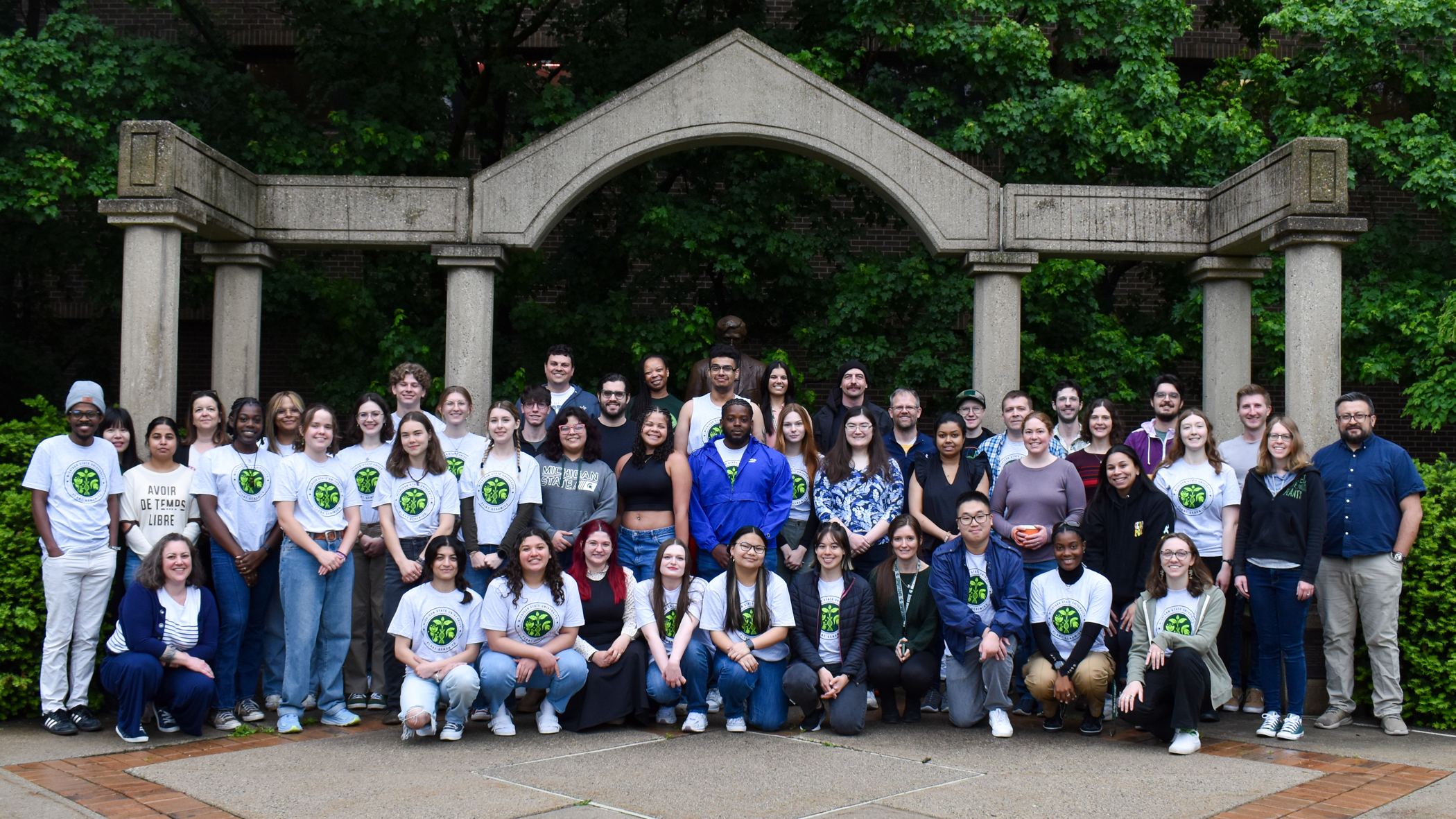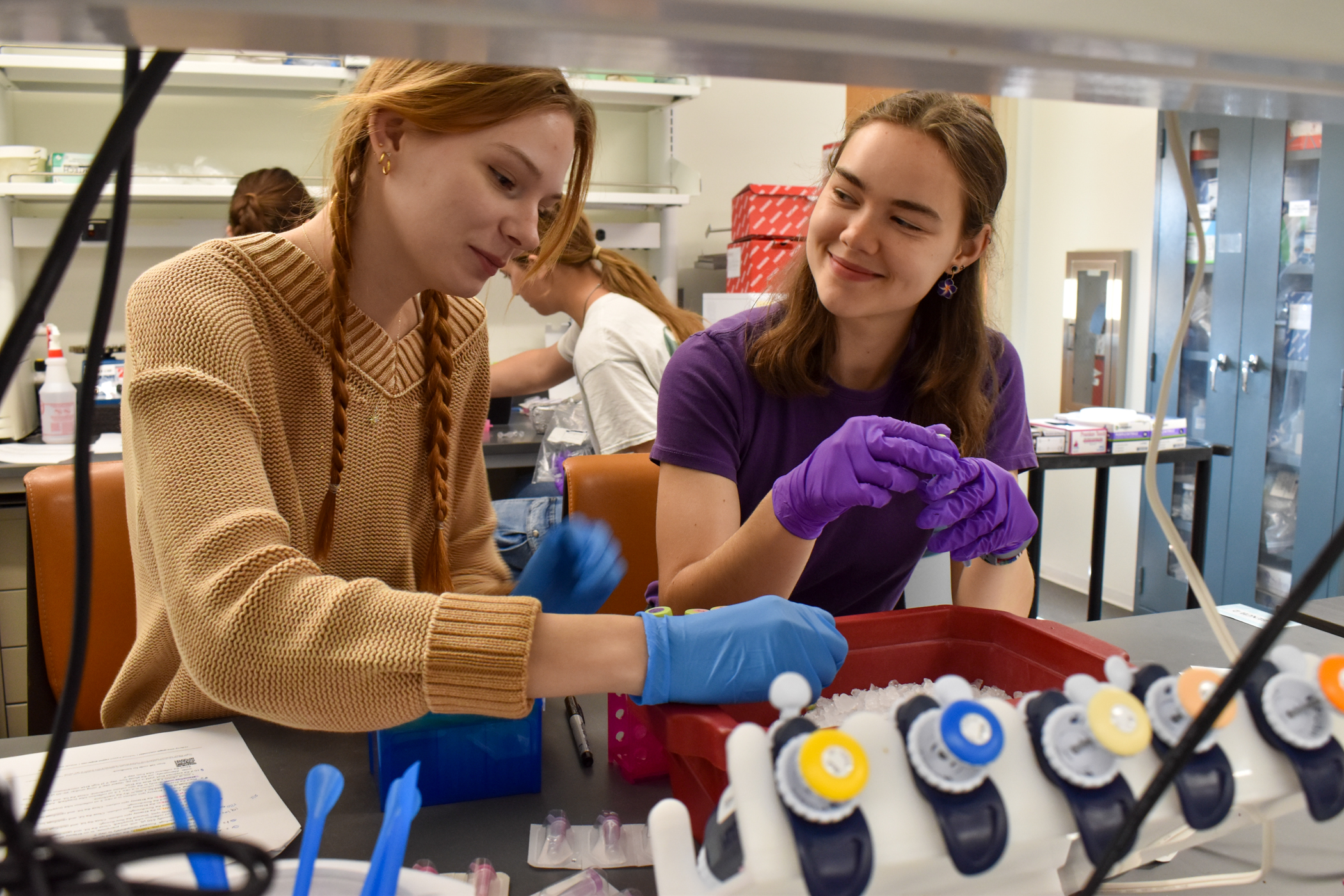Undergrads participate in summer research, fueling future bioeconomy
The program takes these early-career scientists and immerses them in faculty-mentored research, focused on the genomics of plants and photosynthetic microbes.
The Plant Genomics @ MSU Research Experience for Undergraduates, or REU, program brought
21 undergraduate students from 20 universities to research and study at Michigan State
this summer.
As the global population grows and weather extremes put pressure on natural resources and agricultural production, the need for innovative solutions to develop more resilient crops is critical. The MSU Plant Genomics REU program directly addresses this demand by providing an integrated training experience, designed to cultivate scientists who can transcend disciplinary boundaries and harness “big data” to guide the development of improved crops.
The program takes these early-career scientists and immerses them in faculty-mentored research, focused on the genomics of plants and photosynthetic microbes. Students gain hands-on experience, develop critical thinking abilities and refine their scientific communication skills through research projects, seminars and workshops. They also receive guidance on graduate school applications and diverse career paths.

“Our goal is to foster a dynamic learning environment where students not only conduct cutting-edge research but also develop the professional acumen to thrive in the STEM workforce,” said Cornelius Barry, one of the program leaders. “We believe this integrated approach is essential for creating scientists who can effectively address a variety of complex challenges, thereby contributing to the US bioeconomy through advancements in sustainable agriculture, health innovations and bioenergy solutions.”
The program's positive and transformative impact is evident in the nearly 300 REU students who have participated, with the vast majority going on to earn advanced degrees and entering the U.S. workforce to aid diverse STEM industries. One such student was Scott Teresi, who went on to earn his Ph.D. in Horticulture and Genetics & Genome Sciences at MSU. He now works as a computational biologist.
“The MSU Plant Genomics REU program was a transformative experience,” Teresi said. “It not only solidified my passion for plant genomics but also provided me with invaluable computational skills and mentorship that have been crucial for my academic and professional journey.”
The program's positive impact is also attributed to the transformative experiences it provides.
“Seeing the growth and enthusiasm of these students is incredibly rewarding,” said Melanie Body, program coordinator for this project. “We strive to provide a supportive and rigorous environment that sparks their scientific curiosity and prepares them for impactful careers.”

The Plant Genomics @ MSU REU program has a rich history, founded in 2006 by Robert Last, University Distinguished Professor in the Department of Biochemistry and Molecular Biology. It was established to provide crucial training opportunities for undergraduates in the emerging field of plant genomics. Cornelius Barry, associate professor in the Department of Horticulture, transitioned into a leadership role in 2012 and has led the program with remarkable success for the past 12 years.
The latest iteration of the program, supported by a fifth consecutive National Science Foundation, or NSF, award, is now jointly led by Barry and Patrick Edger, Red Cedar Distinguished Associate Professor in the Department of Horticulture.
“We are incredibly excited about the renewal of this NSF REU program,” Edger said. “It's an investment in the future of plant science, empowering bright young minds with the interdisciplinary skills needed to revolutionize agriculture and contribute to a sustainable bioeconomy. This program is truly vital for preparing the next generation of leaders in our field.”
The NSF grant that supports this program has been renewed for a fifth consecutive time, ensuring the continuation of the program for the next three years.
The program is a true collaborative partnership across the MSU plant sciences community. In addition to the funding from the NSF, the program is supported by MSU AgBioResearch, the College of Natural Science, the MSU-DOE Plant Research Laboratory, the Great Lakes Bioenergy Research Center, the Plant Resilience Institute, the Department of Plant Biology, the Department of Biochemistry and Molecular Biology, the Department of Plant, Soil, and Microbial Sciences, and the Department of Horticulture. This collective commitment underscores the shared dedication to fostering the next generation of plant scientists.
- Categories: